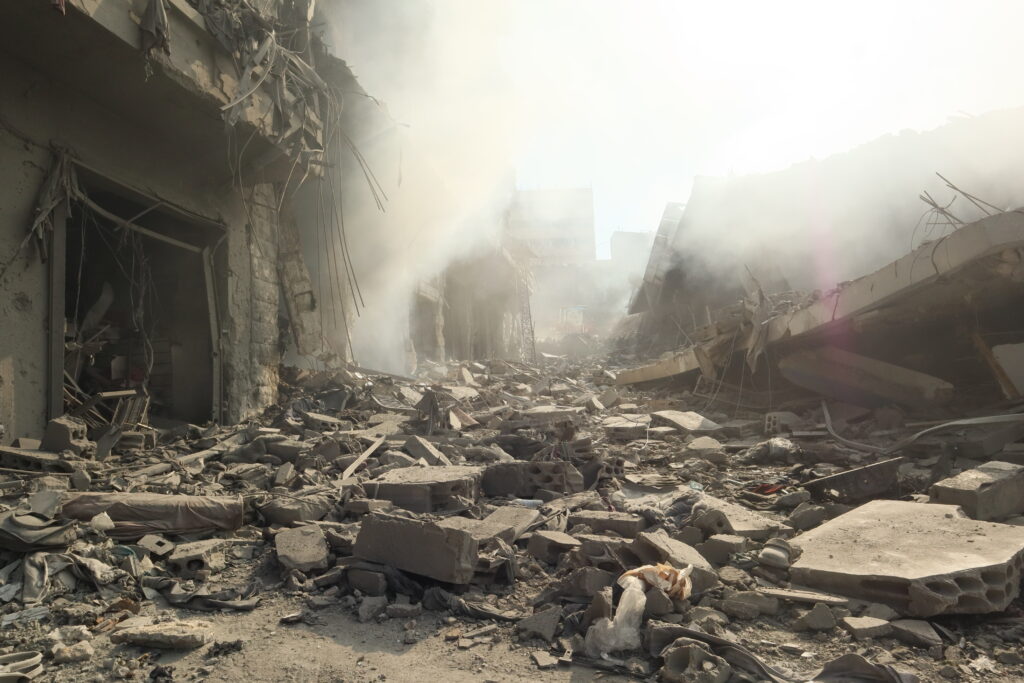
Hezbollah killed four Israeli soldiers and injured at least 67 others in a drone attack on a military base near Binyamina in Israel’s Haifa district yesterday.
The attack came after Israeli airstrikes in Lebanon on October 10 which claimed the lives of 22 people in Beirut’s Basta and Nweiri neighborhoods.
Hezbollah’s drone strike is being seen in Lebanon as a direct retaliation for these Israeli military actions.
Hezbollah deployed multiple drones from southern Lebanon for the assault. Although Israeli defence systems intercepted one drone over the Mediterranean Sea, another managed to breach Israeli airspace and strike its target near Binyamina.
In Israel, the attack raised significant concerns about the country’s air defence capabilities, especially since no warning sirens were activated.
Emergency services evacuated the injured to hospitals in northern Israel and several soldiers were reported to be in a critical condition.
The drone attack was part of a broader offensive by Hezbollah, which also launched rockets towards northern Israel, framing the actions as retaliation for what it called “Zionist aggression” stemming from the earlier Israeli airstrikes in Beirut.
Subscribe to our newsletter and stay updated on the latest news and updates from around the Muslim world!
Israeli military response
In retaliation for the drone strike, the Israeli Defence Forces (IDF) initiated a series of airstrikes targeting Hezbollah positions across southern Lebanon. Within a day, the Israeli Air Force (IAF) carried out approximately 200 airstrikes aimed at degrading Hezbollah’s military infrastructure, including rocket launchers and weapons depots.
Additionally, the IDF strengthened its ground presence along the Lebanon-Israel border, engaging in skirmishes with Hezbollah fighters to prevent infiltration attempts. Israeli officials claimed that dozens of Hezbollah fighters were killed during these operations, along with the destruction of significant portions of their military infrastructure.

But despite Israel’s military response, the drone attack prompted serious concerns among the Israeli public regarding the effectiveness of its defence systems.
The successful penetration of Hezbollah’s drone into Israeli airspace without interception has led to widespread criticism of the IDF and the government. Residents in northern Israel expressed particular alarm over the lack of activated warning sirens, questioning the reliability of the Iron Dome and other advanced defence mechanisms.
In response to these concerns, the IDF acknowledged the security failures and initiated an internal investigation to understand why the drone was not detected and why sirens did not alert the population.
Hezbollah, IDF statements
Following the attack, both Hezbollah and Israeli officials issued strong statements.
Hezbollah claimed responsibility, framing the drone strike as justified retaliation against Israeli airstrikes in Beirut. The group signaled that the drone attack was part of a broader strategy to counter Israeli military actions, warning of further retaliations if Israeli operations continued.
On the Israeli side, IDF spokesperson Daniel Hagari confirmed the casualties and acknowledged the security lapses. He assured the public that an investigation was underway to address the shortcomings in the air defence systems, reaffirming Israel’s commitment to neutralising Hezbollah’s military capabilities.
The drone attack and subsequent Israeli retaliation illustrate an ongoing cycle of violence between Israel and Hezbollah, characterised by tit-for-tat assaults.
Israel has conducted devestating airstrikes in Lebanon “to deter Hezbollah” which have mainly killed civilians, while Hezbollah continues to launch drone and rocket attacks targeting both military and civilian areas in Israel.
As the conflict intensifies the risk of broader regional escalation increases, with both sides gearing up for extended hostilities.






















